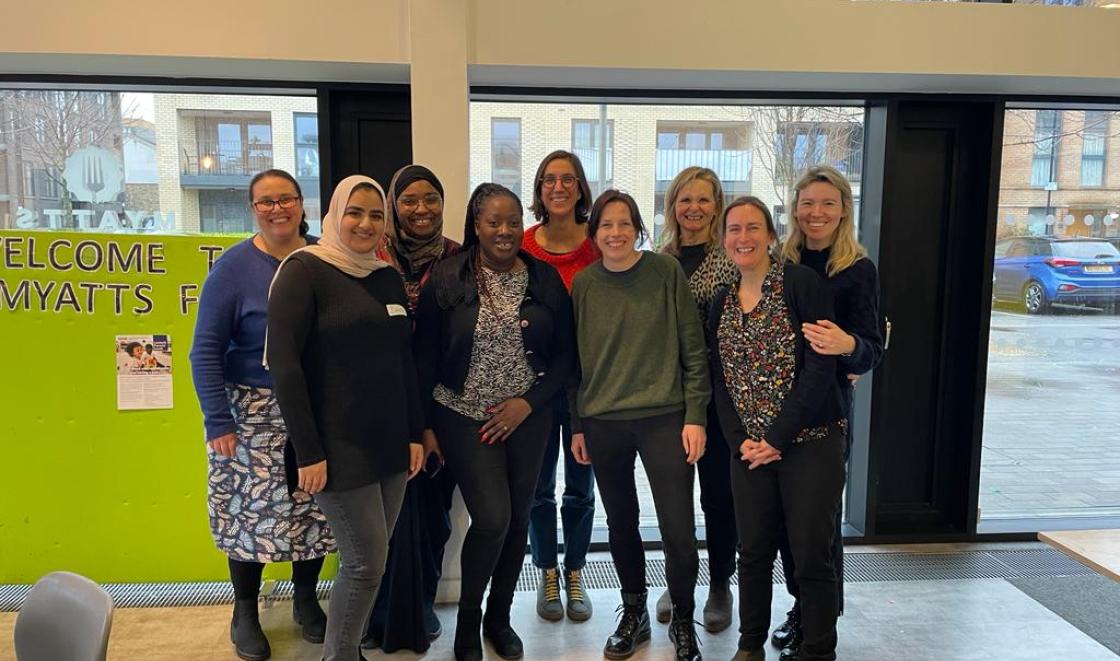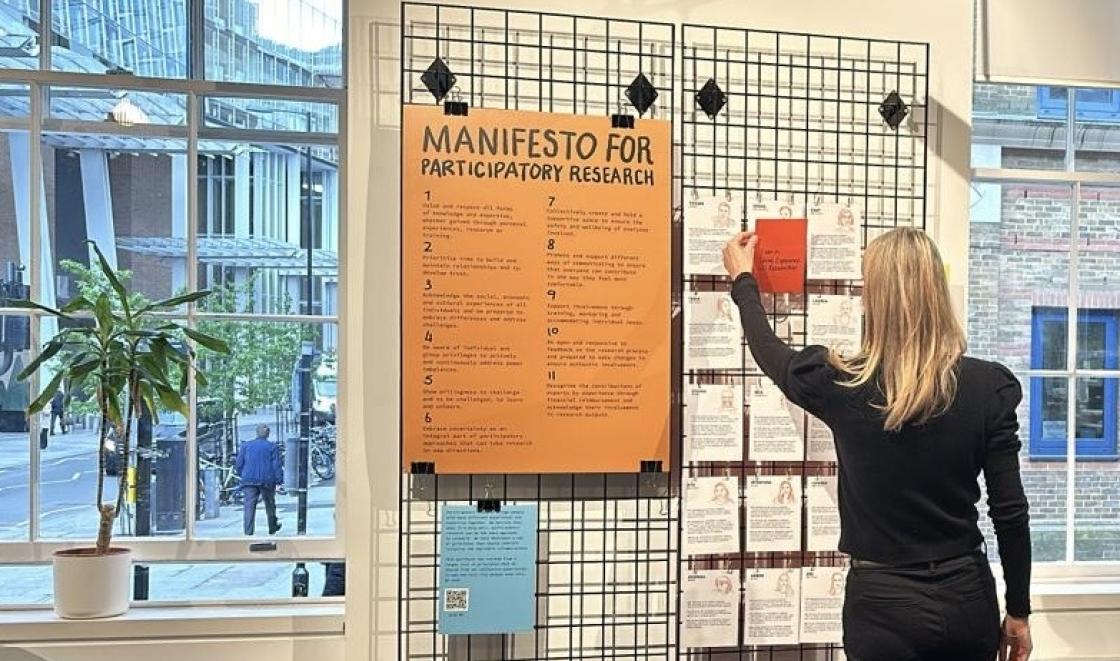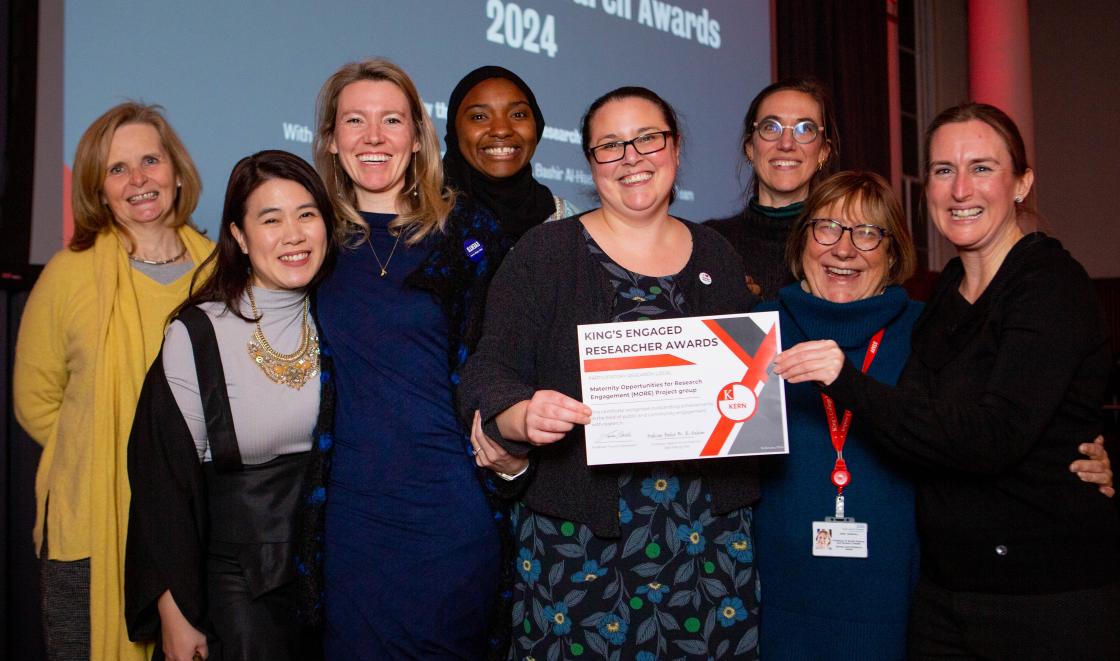Photo: The maternity and perinatal mental health theme receiving their King's Engaged Research Network Award from left (Mary Newburn, Tania Sutedja, Vita Moltedo, Zenab Barry, Abigail Easter, Kaat de Backer, Jane Sandall and Zoe Vowles.)
Throughout my experience of patient and public involvement and peer research, I have been lucky to have come across some projects and spaces which have truly valued the role of people with lived experience involved in research. The Experts by Experience: Who Knows Best? exhibition has certainly been one of these examples. It was inspiring to be meaningfully involved and acknowledged right from the start of the planning process and throughout. The Manifesto which we collectively produced is one concrete example of this collaboration.
It would be wrong to paraphrase some of the content or to quote only a selection of the values here, since they were carefully chosen and compiled. The words ‘value’, ‘respect’, ‘awareness’, ‘willingness’, ‘challenge’ and ‘support’ can offer a glimpse into what we came up with. That said, there is so much more to this experience than what was produced in black and white. For each of us, the personal and collective journey of being part of this project and seeing it evolve and develop has been truly edifying.
I must also mention a couple of other spaces where I have felt trusted and respected as a public member and a person with lived experience and where I have felt that my contribution has been acknowledged and appreciated: the ARC Public Research Panel, a truly diverse group of people, all of whom have strong links in the community and a deep interest in healthcare research. As a panel, our trust in each other has grown and strengthened over time, just as our understanding of public involvement in many branches of healthcare research. The time it takes to create and maintain such an active and effective group of public involvement representatives, who can meaningfully affect and at times shape research, cannot be underestimated.
Support, trust and respect
Similarly, I have felt truly stimulated and inspired by the PPIE work which I have been doing as a public member of the ARC's maternity and perinatal mental health theme. Within this group I have been genuinely supported, and I was able to take part in several projects and most recently to take on the role as a peer researcher within the MORE project outlined above.
Being involved in healthcare research as a member of the public is a meaningful and important activity, but it is fundamental to have the right support throughout. The relationship between academic research and experts by experience can be edifying and inspiring, as long as there is the right attitude on both parts and the right conditions that have been carefully and conscientiously considered. There can be various ‘invisible’ obstacles to the success of this relationship but the satisfaction by far exceeds the difficulties. I would encourage anyone with an interest in research to get involved, provided that their motivation and objectives are clear.
My personal motivation corresponds with my objective – which is to help improve healthcare services through research and thus reduce health inequalities. A simple yet complex endeavour!
Find out more
Read more about patient and public involvement in ARC South London's maternity and perinatal mental health theme.


